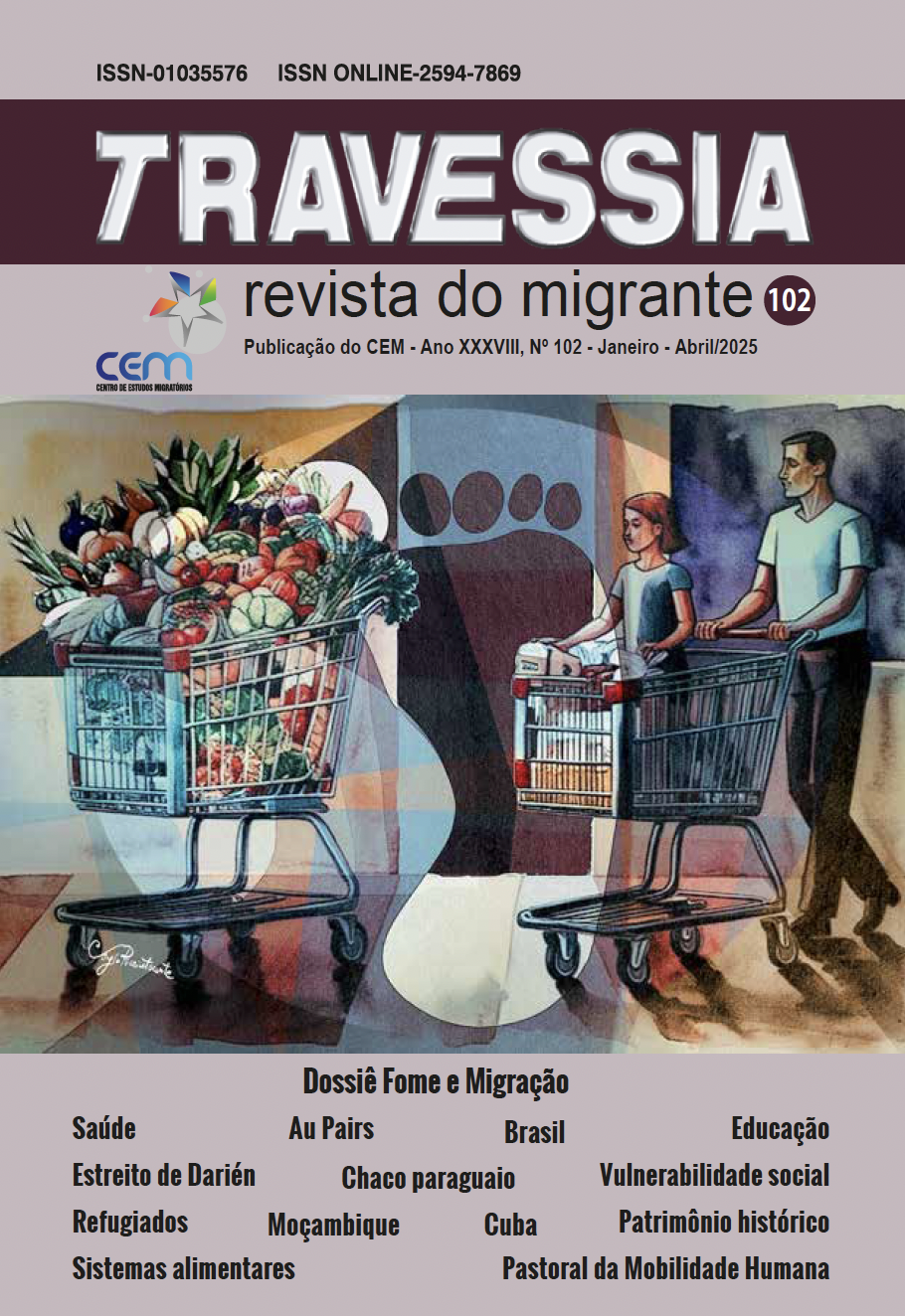Comida (que se) extraña - notas sobre a produção de insegurança alimentar na fronteira norte do Brasil
Palavras-chave:
migração forçada, insegurança alimentar, Operação Acolhida, Venezuela, políticas humanitárias, fronteira Brasil-VenezuelaResumo
Este artigo analisa a produção de insegurança alimentar vivida por migrantes venezuelanos na região Norte do Brasil, à luz das práticas institucionais implementadas durante a chamada “crise humanitária” iniciada em 2015. A partir de dados empíricos coletados em 2019 e 2020 em Roraima, Amazonas e Pará, por meio de entrevistas, surveys e observação participante, o estudo evidencia as fragilidades do modelo de assistência baseado na tutela humanitária e operado majoritariamente pelas Forças Armadas e agências internacionais. Mesmo com o fornecimento de refeições diárias em abrigos, destacam-se a baixa qualidade nutricional, a repetição excessiva dos alimentos, o desrespeito às tradições culturais alimentares e a ausência de autonomia dos migrantes em suas escolhas alimentares. O artigo propõe uma reflexão crítica sobre a narrativa da “crise migratória”, apontando como ela serve a lógicas de controle e exploração da mão de obra migrante, sobretudo no setor do agronegócio brasileiro, e defende alternativas que promovam maior dignidade e protagonismo aos migrantes no acesso à alimentação.



